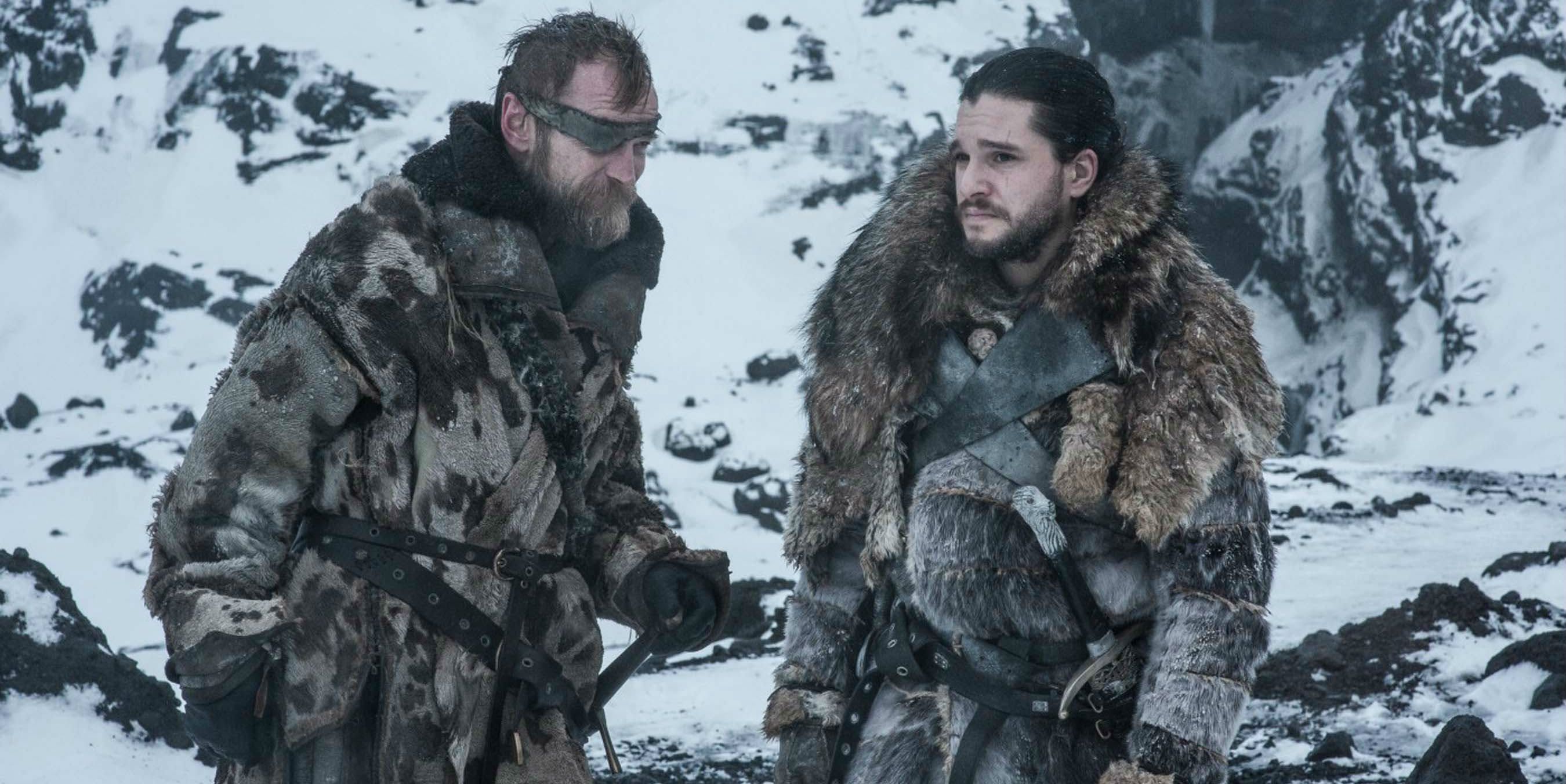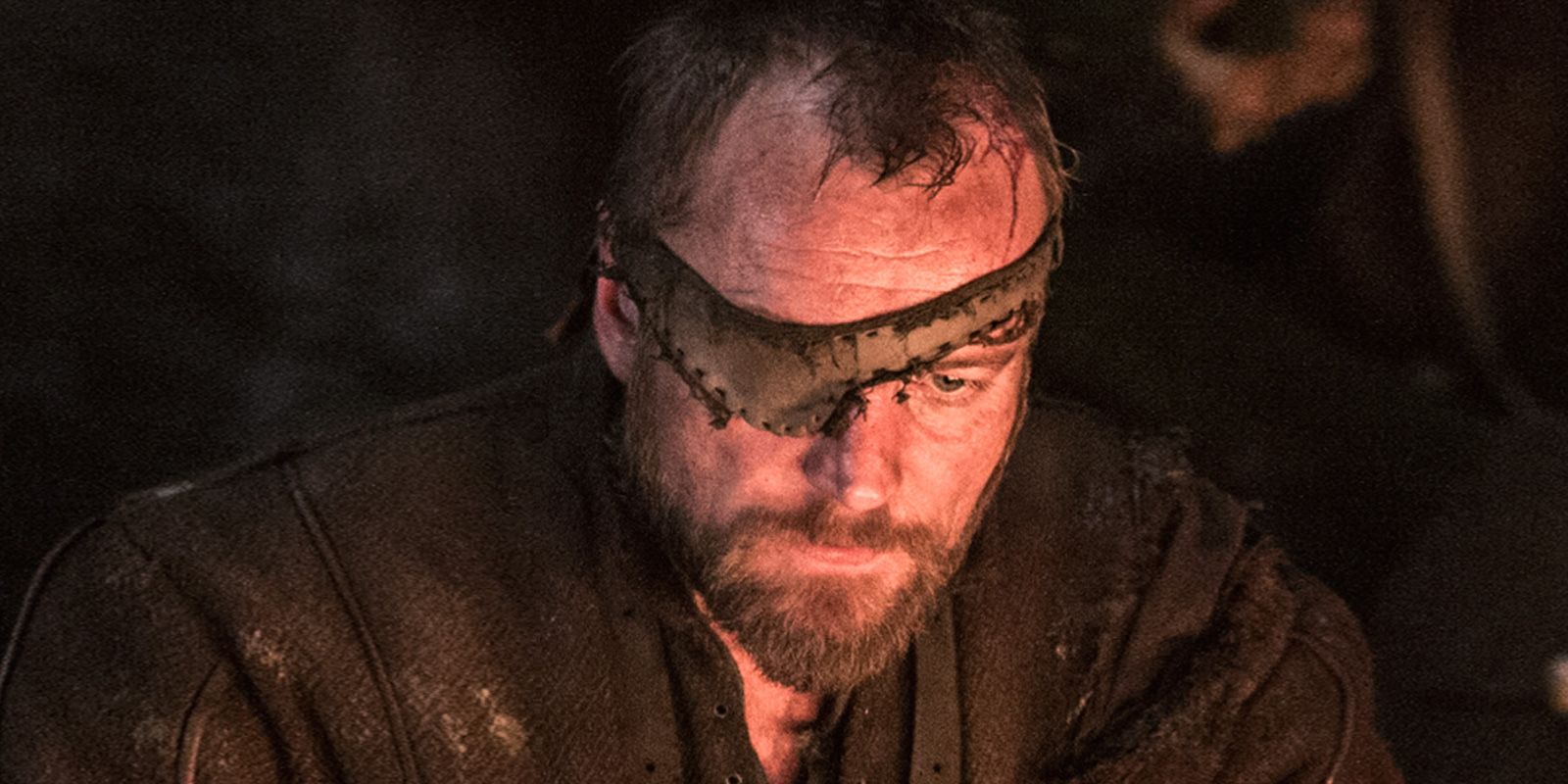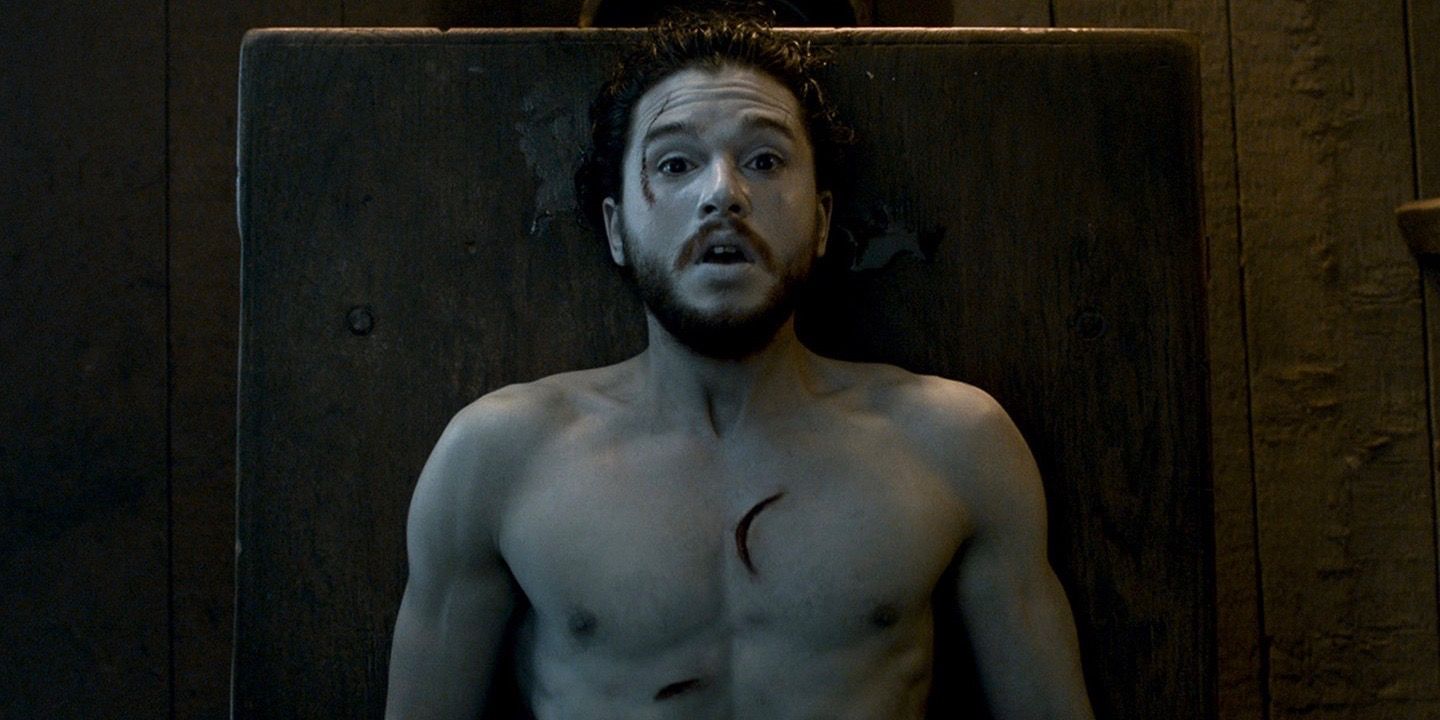Warning: SPOILERS for Game of Thrones season 7 and A Song of Ice And Fire ahead!
-
Last week's episode of Game of Thrones featured Jon Snow leading a ragtag group of men north of The Wall. The gang was something of a who's who's of Westeros' toughest survivors, with each of them having avoided certain doom on more than one occasion.
However, of these hardy heroes only two have actually beaten death itself: Beric Dondarrion and Jon Snow. Both men have died and been resurrected by a red priest or priestess of R'hollr -- Beric by Thoros of Myr and Jon by Melisandre -- and both still carry with them the scars of that experience, be they physical or emotional. For Jon, he still grapples with the implications of his resurrection, while Beric (who at this point has died and returned about a half dozen times) has come to accept his continued life's purpose -- being a warrior for the Lord of Light, defending those who cannot defend themselves.
The two men discuss this for a time while marching north in "Beyond The Wall", but for as captivating a pitch as Beric makes, the scene never touches on the deeper meaning of what the two have experienced. There's no mention of how being brought back from the dead can change a person, and that with each resurrection, a person loses some of who they were before. Beric has certainly had these kinds of existential thoughts in the past, mentioning to Arya as far back as season 3 that every time he comes back, he's a "bit less." Does Jon feel this way, too? And if so, why not discuss it with the only other person who's ever died and come back?
Since he was resurrected, Game of Thrones has mostly glossed over whether or not Jon feels any different. For the series, his return was a huge win with few consequences. He's clearly shaken by being brought back and grapples with what it all means, but unlike Beric, he doesn't appear to have lost any of his sense of self. And perhaps this is because he's only been brought back once, where Beric has been resurrected on multiple occasions, making the effect stronger for Beric than it is for Jon. But it's either that or Game of Thrones isn't admitting just how much Jon's resurrection changed him and what it could mean for his future.
During their chat in "Beyond The Wall", there's a line of Beric's that stands out as ominous, hinting at the future with a sense of foreboding. "You and I won't find much joy while we're here." When Beric says this he's drawing a direct connection between Jon and himself, recognizing that they are the only two of their kind in existence. But it also doesn't carry any hopeful sentiment for the future, seeming to imply that though they've been given a second chance at life (and in Beric's case, a third, a fourth, and so on), they won't be happy lives.
Complicating the matter even further is this excerpt from a recent TIME interview with A Song of Ice and Fire author, George R.R. Martin, in where after discussing the show's decision to cut the Lady Stoneheart character (herself a resurrected Catelyn Stark), Martin divulges some crucial new information about Beric:
[P]oor Beric Dondarrion, who was set up as the foreshadowing of all this, every time he’s a little less Beric. His memories are fading, he’s got all these scars, he’s becoming more and more physically hideous, because he’s not a living human being anymore. His heart isn’t beating, his blood isn’t flowing in his veins, he’s a wight, but a wight animated by fire instead of by ice, now we’re getting back to the whole fire and ice thing.
Judging by these comments, Martin doesn't seem to consider Beric as alive in the sense that normal, typical humans are alive. The statement becomes even more frightening when Martin compares Beric to a wight -- one animated by fire rather than ice, but still, he's intimating that Beric is more or less a zombie. And speaking strictly about the books, if Beric is meant to foreshadow what becomes of Catelyn Stark -- who as Lady Stoneheart is very zombie-like, with rotten flesh and open wounds -- then it seems apt to make a comparison between those who R'hollr resurrects and the reanimated dead.
So where does this leave Jon? Are we meant to think that no blood flows through his veins, that his heart isn't beating? The show has been vague on this point, either purposefully or not. There's the argument that in the interview Martin is talking about the books and not the show, which is a fair assessment. After all, Lady Stoneheart was cut from the television show so there isn't nearly as strong a link between Beric and being a zombie. And the only character Game of Thrones seems willing to admit might be a bit of zombie (outside of the wights) is The Mountain.
Still, it's worth asking, even in the midst of all that's happening this season -- how alive is Jon Snow? Jon's wounds will never heal, serving as permanent reminders that having been dead he can never again be fully alive. (A fact that Daenerys, having suspected something was up since their first meeting, is now wholly aware of since witnessing those wounds first hand.) Perhaps that is why he's so reluctant to bring it up, unsure if anyone would trust him in battle against the Night King and his dead army if they were to learn that he, too, is kind of still dead.
And what could this mean for the future of his family line, be it Stark or Targaryen in name? With Game of Thrones very obviously pushing Daenerys and Jon closer together and the repeated mentions of Daenerys being unable to conceive -- a fact which comes up so often it's as if the series is looking to prove it wrong -- why is their no question of whether or not Jon can have children? If he's reanimated more than he is alive, that doesn't suggest he can really do his part in making new life. Again, Beric warns Jon that theirs is a life without joy, suggesting that settling down with a wife and having kids likely isn't option. (Then again, maybe that's just what's needed to "break the wheel", a monarchy incapable of establishing a hereditary line of succession.)
It's surprising the series is glossing over the idea that death changed Jon, that when he came back he was also a "bit less". And Beric and Jon's little chat in "Beyond the Wall" would have been the perfect moment, allowing these two dead men walking to share what it's like to live with the knowledge that you aren't really alive. But Game of Thrones didn't do that, instead keeping the focus on the endgame at hand and Jon's role in it. Will he become a warrior for the Lord of Light? Azor Ahai reborn, even? It's certainly possibly, maybe even likely, but that still doesn't explain why the series is unwilling to address the burning question -- how alive is Jon Snow, really?



